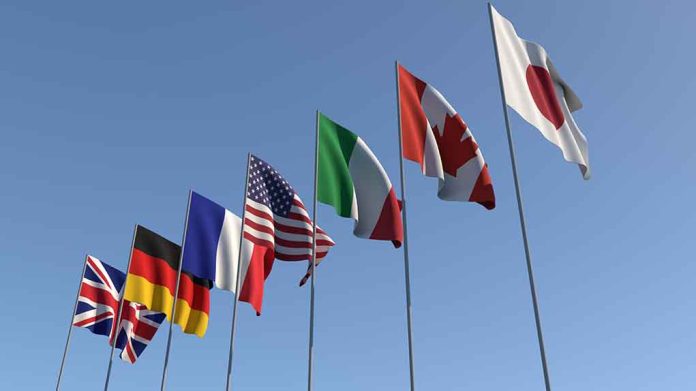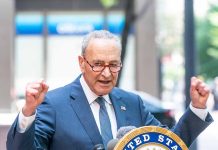
U.S. Secretary of State Marco Rubio unveils a bold reciprocal tariffs strategy aimed at rebalancing global trade, potentially transforming decades of what the administration views as unfair practices against American businesses.
Top Takeaways
- The United States plans to impose tariffs on major trading partners as part of a global strategy to establish reciprocity in international trade relations
- The Trump administration has already implemented and then removed a 25% tariff on Canadian and Mexican imports, with threats of a 200% tariff on European alcohol products
- Secretary Rubio emphasizes the tariffs are not targeting specific countries but represent a broader effort to reset baseline trade relations
- The strategy aims to boost domestic manufacturing while creating leverage for potential bilateral trade negotiations after tariffs take effect
- Rubio maintains the current trade status quo is “unsustainable” and requires fundamental restructuring
Establishing a New Trade Baseline
Secretary of State Marco Rubio has clarified that the administration’s controversial tariff strategy represents a comprehensive approach to restructuring America’s trade relationships worldwide. Speaking on CBS’s “Face the Nation,” Rubio emphasized that the policy is not directed at specific trading partners but rather aims to address systemic imbalances in global commerce. The plan intends to create leverage for new negotiations after establishing what the administration considers a more equitable starting point for future trade deals.
“This is global. It’s not against Canada, it’s not against Mexico, it’s not against the EU, it’s everybody,” Rubio stated, making clear the universal application of the new trade approach. The administration previously implemented and then quickly removed tariffs of 25% on imports from Canada and Mexico, while also proposing a striking 200% tariff on European Union alcoholic beverages.
The goal the President has made very clear is he wants to reset the baseline of international trade, which he believes – and I agree – is unfair to the United States. — Secretary of State Marco Rubio pic.twitter.com/tef8jscSgr
— Jonathan Htet (@jonathan_htet) March 18, 2025
Responding to Decades of Trade Imbalances
The reciprocal tariff strategy stems from the administration’s belief that the United States has faced decades of disadvantageous trade relationships. According to Rubio, the initiative aims to address what they consider to be an unsustainable status quo that has undermined American manufacturing and economic interests. Rather than accepting existing trade arrangements, the administration intends to establish a new baseline that encourages fairness and genuine reciprocity between trading partners.
The approach has generated significant international reaction, with Canada, Mexico, and European nations expressing concern and implementing retaliatory measures. Despite widespread criticism from traditional allies and trading partners, the administration remains committed to its position that these measures represent necessary steps toward establishing equitable trade relationships that benefit American workers and businesses.
Dual Focus on Manufacturing and Reciprocity
Secretary Rubio outlined two primary objectives driving the administration’s trade policy. First, the tariffs aim to incentivize domestic manufacturing by making imported goods comparatively more expensive. This approach seeks to rebuild critical American industries that have declined amid globalization. Second, the administration is pursuing trade relationships based on genuine reciprocity, where American products face the same tariff rates abroad as foreign products face in the United States.
“We don’t like the status quo. We are going to set a new status quo, and then we can negotiate something, if they (other nations) want to,” Rubio said. “What we have now cannot continue.”
While Rubio has not provided specific details about potential new trade agreements that might emerge following the implementation of tariffs, he has consistently emphasized that the administration remains open to bilateral negotiations after establishing their new baseline. This approach suggests a shift away from multilateral trade frameworks toward direct country-to-country agreements that the administration believes would better protect American economic interests and ensure fair treatment in international commerce.






















